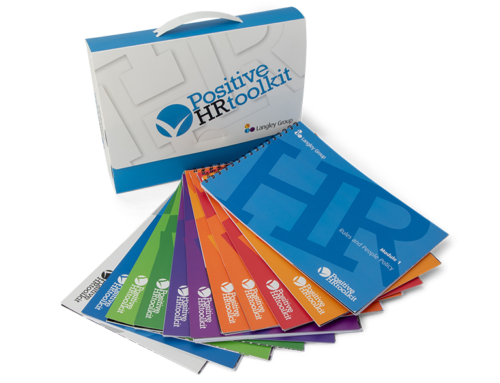Our suite of consulting and coaching services support our clients to build positive, healthy, and flourishing organisations. We look to find transformational solutions and provide accessible learning tools for those with whom we work. In addition, we are constantly acquiring new knowledge and mastering our skills.
Our Langley Group community recently had the rare opportunity to further craft coaching skills from the best in the business, Dr Robert Biswas-Diener. Robert is a wellbeing researcher, certified coach, and thought leader in positive psychology coaching. He teaches that coaching is a facilitated process where the coach engages clients in self-directed learning and planning and holds them accountable for progress. His work integrates positive psychology and coaching in an inspirational way.
As a Senior Consultant for Langley Group, Emma describes Dr Robert Biswas-Diener as a ‘guru’ in this field. As we spotlight the importance of coaching skills, we thought it was timely to share personal insights from Emma about this integral process.
Emma specialises in developing the confidence, motivation, and wellbeing of people through facilitating, executive coaching, career coaching and strengths coaching. She brings a wealth of experience across the corporate, professional services, non-profit and government sectors.

She has a unique career that includes training in positive psychology (wellbeing, emotional intelligence, and neuroscience), a legal background and extensive experience in management consulting (cultural, leadership, HR areas).
With every new client come different expectations, challenges, hopes, and dilemmas that need strategic and tangible solutions. True to the Langley Group way, Emma places the science of human flourishing and strengths at the core of this process. Here are some insights from our recent chat!

How do Strengths-Based approaches integrate with your coaching?
In my coaching, I use a strengths-based approach, aligning with my mission ‘to provide insights that help people thrive’. In coaching, this translates to asking good questions supporting and challenging people. When people understand their strengths, what they are great at, and what they love doing, it changes how they approach their goals and challenges in a way that people find very enlightening. I think it’s powerful to challenge people to think differently about their obstacles and roadblocks to find new ways to overcome them.
I’ve learned an enormous amount about how and why people flourish by studying the Positive Psychology and Wellbeing Diploma. So, I like to apply the tools and strategies I’ve learnt to myself and share them with others.
What advice would you give to a person when choosing an executive coach? What questions should they ask?
Beyond the obvious questions around experience and qualifications, I think what is critical is to have an introductory chat with your coach first to understand what coaching involves and to see how well you connect. Just as with all relationships, it’s essential to find a coach you relate to. Ask how they approach coaching and let them know what you hope to achieve from the process.
How have you seen the industry evolve, which changes are better?
I think executive coaching used to be for CEOs and senior leaders in an organisation. These days it’s more common for the ‘everyday’ person to have a coach. I’ve noticed that the Covid pandemic has increased people’s appetite for coaching. They may not be having so many informal coffee/water cooler chats with colleagues at work, and they also want to be able to talk confidentially with someone outside of the team. I think coaching is much more accessible to people than it used to be in the past, and this is great for anyone that wants to grow and develop.
How do you think Covid has changed people’s perspectives on career and work environments?
People can be much more flexible now in how they work, with many more opportunities to work from home. That’s been a fundamental, and I think, permanent shift in the working landscape. When adversity hits, like Covid, it offers people a natural opportunity to reassess their values rethink their goals, which often brings about a new perspective on what’s important in life and a career.
Which Psychometric Tools are most valuable in the Executive Coaching space?
There are many tools out there that bring valuable insights to people. I love the Strengths Profile tool because it doesn’t put people in a personality box. It celebrates what is unique and special about individuals, and it’s so energising for people to understand. Because it’s a dynamic tool, it’s also very relevant to what is going on for people in the moment.
Can you describe your favourite moments when working with clients?
When clients have an ‘aha’ moment, or a complete change in perspective around something they have been struggling with; that is a great moment. Seeing people rediscover gratitude in their careers and lives is also rewarding. It’s important to coach so that people focus on what they can do, not what they can’t do. We don’t ignore weaknesses; we concentrate on and celebrate strengths, which is empowering for all. It’s about maximising peoples personal and professional potential.
Most tools are good in that they are interesting for people to understand more about themselves, yet I think the ‘so what?’ factor is valuable when assessing which psychometric tools to use. One that is action-based or enables a conversation around ‘what do I do with this information and how can it help me?’ is essential.
How have you seen the industry evolve, which changes are better?
I think executive coaching used to be for CEOs and senior leaders in an organisation. These days it’s more common for the ‘everyday’ person to have a coach. I’ve noticed that the Covid pandemic has increased people’s appetite for coaching. They may not be having so many informal coffee/water cooler chats with colleagues at work, and they also want to be able to talk confidentially with someone outside of the team. I think coaching is much more accessible to people than it used to be in the past, and this is great for anyone that wants to grow and develop.
How do you think Covid has changed people’s perspectives on career and work environments?
People can be much more flexible now in how they work, with many more opportunities to work from home. That’s been a fundamental, and I think, permanent shift in the working landscape. When adversity hits, like Covid, it offers people a natural opportunity to reassess their values rethink their goals, which often brings about a new perspective on what’s important in life and a career.

Ready to learn more?
Please contact us to chat with one of our passionate team to discuss your objectives and needs; we’d love to help!
Read our blog ‘In Conversation with Dr Robert Biswas-Diener.’
Learn with Sue is an online membership like no other. Interact with the brightest minds in positive psychology who have dedicated years to identify the secrets of “what makes a good life” both personally and professionally. Access a library of resources, tools, and tips to help you implement the science to boost your wellbeing. For more information about a Learn with Sue membership visit Learn with Sue






